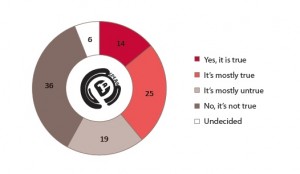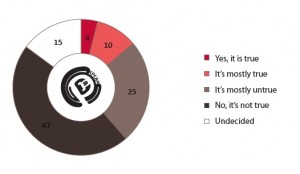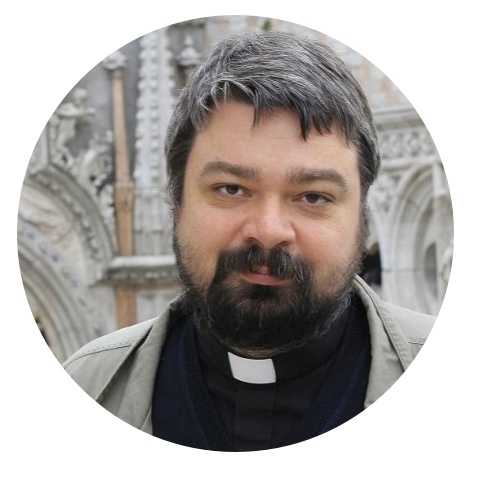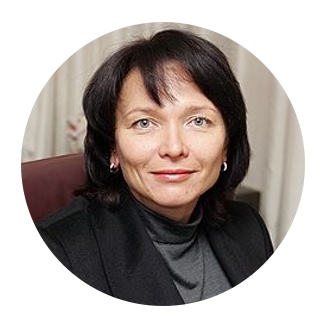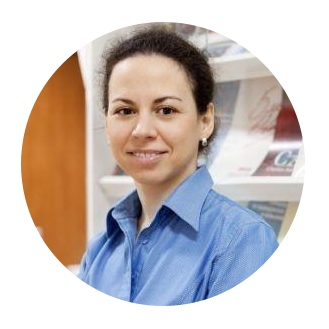Charity involvement
06/30/2011The true purpose of charity is not to do good, but to make it so that there is no one left in need of this goodness.
Vasiliy Klyuchevskiy
The results of the All-Russian representative survey conducted by the service SREDA (field work: Public Opinion Foundation “PENTA”, sample 1500 people)
39% of Russians are taking part in charity events. Moreover, one in two religious people helps the needy free of charge, as well as one in every five non-religious people. Most Russians believe charity to be beneficial, apart from 14% of respondents who believe that it does more harm than good. Interestingly, this negative view is more often expressed by the poor.
Tomorrow, on July 1st, the Catholic Church celebrates a holiday dedicated to worshiping the Sacred Heart of Jesus Christ. How far are Russians prepared to open their hearts to their neighbours?
According to a worldwide survey conducted by Gallup, Russia occupies the 138th position in the charity rankings – according to the portal “Orthodoxy and the World” with reference to the British charity fund CAF.
As shown by an All-Russia survey carried out by SREDA Service, 39% of Russians are personally involved in charity (indicated by those respondents who answered “true” (or “mostly true”) to the question: “As far as possible I take part in charity events”).
Women (44%) are engaged in charity more often than men (32%). Also more likely to participate in charity events are entrepreneurs, respondents with higher education (or incomplete higher education) and those respondents who consider themselves happy.
Religious respondents – Christians and Muslims – most noticeably contribute to the cause of charity, but non-believing citizens, by contrast, rarely engage in charity. Thus, one in two religious Russians is involved in charity, as compared to only one in five non-believers.
More than half of citizens (53%) are not engaged in any charity work. Most often this was reported by the most vulnerable groups: Russians with a low material wealth and the unemployed seeking work. Also less likely to participate in charity events are uneducated Russians.
With regard to the federal districts, the most responsive Russians live in Central Russia. Less often engaged in charitable events are respondents from Northwestern and Siberian federal districts (about 30% participate in charity events, while more than 60% do not).
A noticeable difference with respect to charity involvement was discovered in terms of the types of settlements in which respondents live. Residents of villages, towns and cities with populations of less than 50 thousand people are the least likely to engage in charity. In contrast, in cities with over one million residents, charities are attracting the most participants (oddly enough, this does not apply to Moscow).
Age had practically no effect on charity participation (excluding respondents over 65, who are understandably less likely to participate in charity events).
In the course of the study, survey participants were asked to rate their attitude towards the statement, “Charity results in more harm than good”. 72% of Russians did not to agree with this statement. However, 14%, as it turned out, consider philanthropy harmful.
Most likely to believe that the benefits of charity are greater than its possible damages were students and pupils (83%) and non-Orthodox Christians. As for the Orthodox, much more likely to see no harm in charity were those respondents who do not participate in parish life, but would like to participate in it (84% of all respondents; this group includes 17% of all the respondents, 255 people). Also more likely to find charity useful were: Russians with higher education, those who call themselves happy respondents with a relatively high income, and respondents who highly value the initiatives of His Holiness Patriarch Cyril.
Most likely to agree with the statement that charity does more harm than good were the respondents who do not belong to any religion, but still believe in God (of which one in five sees harm in charity). Also more likely than on average to see harm in free help to the needy were the following groups: respondents who are not going to participate in the upcoming Russian national elections; those who don’t hold the Patriarch’s initiatives in high esteem, and those residing in Ural Federal District.
Muscovites are much more likely to agree and much less likely to disagree with the statement that charities cause harm. It seems that in the eyes of the capital’s residents, charitable activities have not gained the best reputation for themselves.
Ironically, most likely to see harm in charities are the low-income respondents who do not have enough money even for food: among them one in four said that the damages exceed the benefits of charity.
Age and gender of the respondents did not show any correlation with the answer whether charities are more harmful or more beneficial. Those respondents most often unable to decide were uneducated Russians who have not attended higher education programs.


